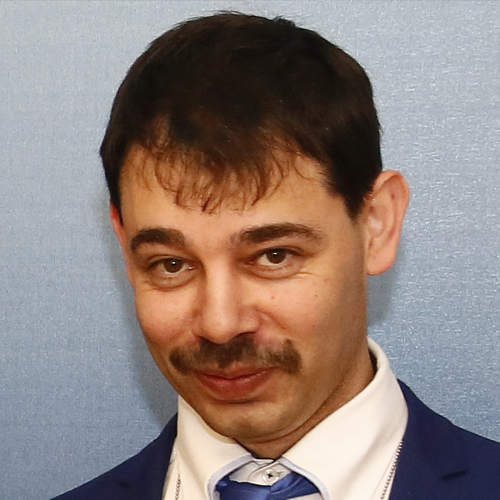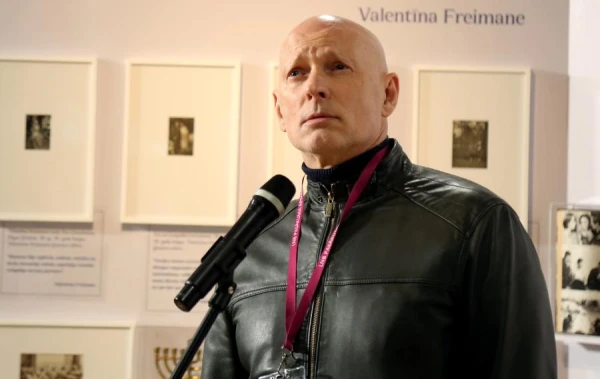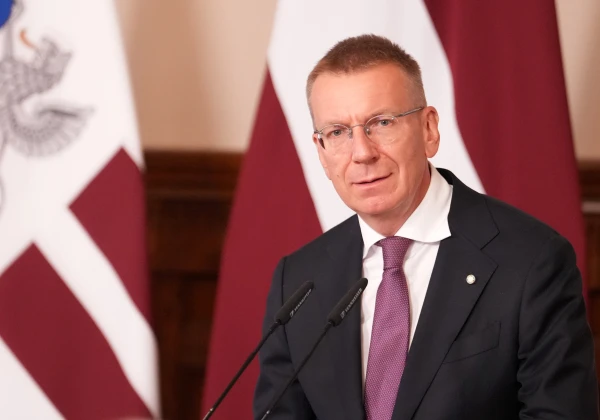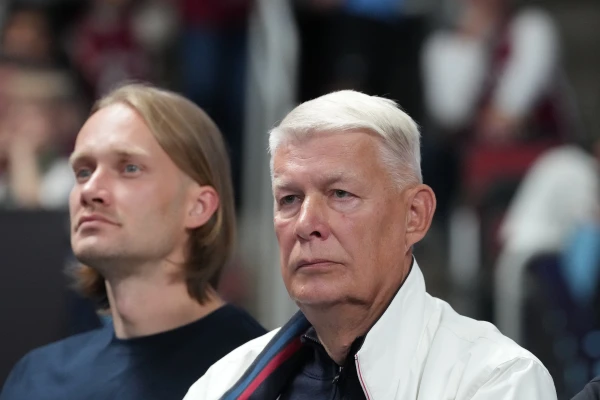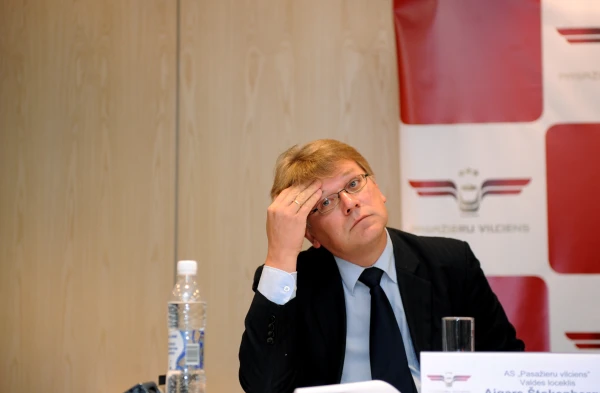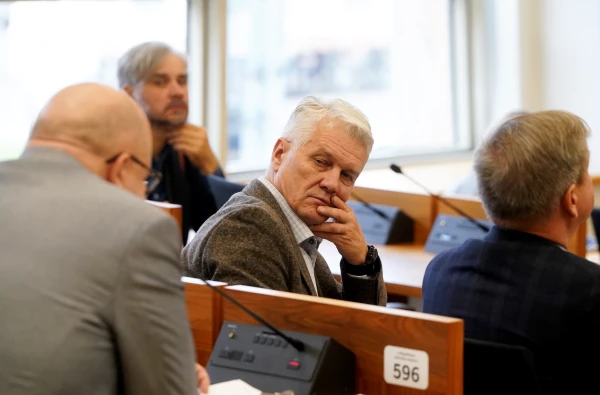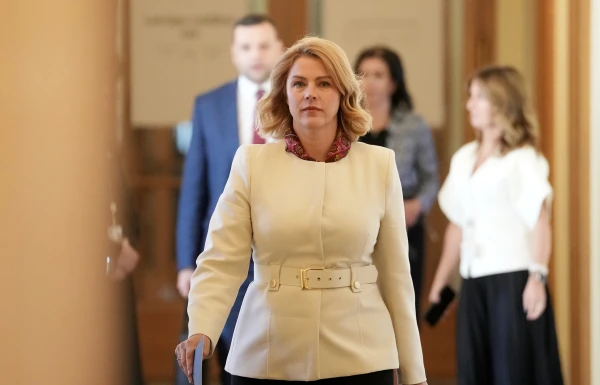
A government crisis is brewing in Latvia. The ruling party is unable to secure a majority in the plenary sessions of the Saeima.
Partners in the ruling coalition resemble a couple on the brink of divorce, once again hashing out their differences. They have become so engrossed in this process that they did not notice they had stepped out onto the street, where anyone could witness their quarrel.
Scandal in the "Noble Family"
And so, on Wednesday evening, the ruling party, having "forgotten" that they were actually live on air, argued as much as they could! Viewers were left to grab popcorn and watch this market-style brawl. One could even warm themselves up with shouts of: "Come on, Vitya, give him a punch!" Or - "Andris, don’t slack off – hit him back!"
Against the backdrop of these disputes, the Prime Minister's statement on Monday that the coalition decided to forget about disagreements until the budget was adopted looked simply ridiculous. The disagreements not only remained, but the coalition politicians grew to hate each other even more.
Let us recall that the scandal in the "noble family" occurred last Thursday - the "green farmers" together with the opposition voted to start consideration in the Saeima of a bill on Latvia's withdrawal from the Istanbul Convention. The "progressives" were particularly outraged by the behavior of the "green farmers," for whom the ratification of the Istanbul Convention and the regulation of partnership relations (read - same-sex relationships) is a top priority in this parliamentary term.
However, Prime Minister Evika Silina, not wanting to lose her position as head of government, effectively did not succumb to the provocations of the "progressives" and refused to dismiss the Minister of Welfare Reinis Uzulnieks (Union of Greens and Farmers). And on Monday evening at the coalition council, an agreement was supposedly reached that until the Saeima adopts the security budget (as the ruling party dubbed the budget-2026), all disagreements within the coalition would be set aside.
Hand Over the Portfolio!
On Wednesday evening, hundreds of thousands of viewers in the live broadcast of Domburs' program "Kas notiek Latvijā?" could see that the Prime Minister, to put it mildly, was mistaken in assuring that all disagreements were temporarily "forgotten." A real spat occurred between the leader of the parliamentary faction "Progressives" Andris Shuvaevs and the Minister of Economics from the Union of Greens and Farmers Viktor Valainis. Shuvaevs constantly accused the "green farmers" of uncollegial behavior (that all questions regarding the Istanbul Convention could have been discussed within the coalition) and of violating the coalition agreement.
To which Valainis noted that the "green farmers" had long been violating this coalition agreement - in particular, they had expressed support for Palestine, violating the clause of the agreement on a unified foreign policy. "And in general, your faction in the Saeima has already lost two deputies during this time, yet you still have three ministers," Valainis reminded, hinting that one ministerial portfolio should actually be taken away from the "progressives" based on the principle of proportionality.
At some point, a third participant in the spat - the head of the parliamentary faction "New Unity" Edmunds Jurēvics - realized that his coalition partners had gone too far and called for the quarrel to stop. But his coalition comrades did not listen to him and continued to clarify their relationships. Shuvaevs kept repeating that the actions of the "green farmers" should not go "unpunished" - meaning that the Minister of Welfare should be removed from office. To this, Valainis warned that the dismissal of the minister from the Union of Greens and Farmers would not go "without a symmetrical response," which means - the party would demand the dismissal of one minister each from "New Unity" and the "Progressives."
"It is the Prime Minister's right to demand the resignation of a minister," the program host reminded. "Well, we also have some rights," Minister Valainis countered. Essentially, he made it clear that the dismissal of the head of the Ministry of Welfare would lead to the fall of Silina's government. Silina herself is well aware of this, which is why she did not "touch" Minister Uzulnieks.
A Minority Government, However
However, the main problem for the Prime Minister is not even the disagreements within the coalition, but the fact that this coalition "chronically" lacks votes in the Saeima, which the opposition once again took advantage of. So, yesterday at the beginning of the plenary session, the ruling party refused to make "concessions" to the opposition and remove two bills from the agenda of the next plenary session within the framework of the so-called "green course."
In retaliation, the opposition, taking advantage of the absence of four deputies from the coalition, disrupted the quorum. That is, opposition deputies pulled out their voting cards and for the bill within the "green course" - "On Pollution," only 46 votes were cast with the minimum necessary quorum being 50 votes out of 100. The Speaker of the Saeima Daiga Mierina was forced to interrupt the next plenary session.
Yes, then the ruling party and the opposition, gathering 34 signatures, managed to convene two extraordinary plenary sessions, and the agenda planned for the next meeting was still considered. Thus, at the first extraordinary meeting, deputies urgently adopted a special law on the creation of anti-mobility infrastructure. In short, the law defines the legal procedure for constructing barriers and obstacles along the borders with the Russian Federation and the Republic of Belarus, as well as in the area of the 30-kilometer border zone. If this requires the expropriation of private land and other real estate of private individuals, then, as the law states, they will receive fair compensation - taking into account market prices for real estate in the region.
Yes, the agenda was managed to be considered, but... a "grudge" remained - the ruling party demonstrated an inability to achieve coalition discipline. In fact, the country is now living under a minority government, and there is a clear political crisis. Perhaps it is worth agreeing with political scientist Ikstens that in a situation where the ruling party de facto has no majority in the Saeima, Prime Minister Evika Silina herself should resign rather than cling to her seat, knowing that she cannot pass the necessary bills through parliament. How can the government adopt the budget-2026 in such a situation?
Who's New?
The head of the United List Edgars Tavars assured on Wednesday in the same live broadcast that there is currently no new coalition option, but "semi-formal," as he put it, behind-the-scenes discussions about a possible new government are underway.
It seems the question is no longer whether Silina's government will collapse, but when this will happen - BEFORE the adoption of the budget-2026 or immediately AFTER?
